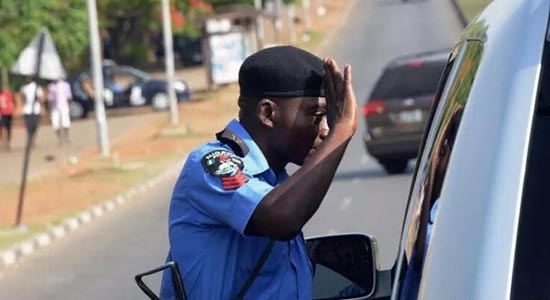KNOW THE LAW 06/09/2022
How To File A Complaint Against A Nigerian Policeman

The Nigerian Police Service Commission was established under Section 153 of the Nigerian constitution and the Police Service Commission Establishment Act of 2001. The commission is an oversight body over the Nigeria Police Force. It has the power to appoint, promote and discipline all police officers of the Nigerian Police Force except the Inspector General of Police.
Section 6 Nigerian Police Service Commission Establishment Act provides the functions and powers of the Nigeria Police Service Commission as follows:
- They shall be responsible for the appointment and promotions of persons to offices in the Nigerian Police Force (other than the office of the Inspector General of Police).
- Dismiss and exercise disciplinary control over persons (other than the Inspector-General of Police) in the Nigerian Police Force;
- Formulate policies and guidelines for the appointment, promotion, discipline and dismissal of officers of the Nigerian Police Force;
- Identify factors inhibiting or undermining discipline in the Nigeria Police Force;
- Formulate and implement policies aimed at the efficiency and discipline of the Nigeria Police Force;
- Perform such other functions which in the opinion of the Commission are required to ensure the optimal efficiency of the Nigeria Police Force; and
- Carry out such other functions as the President may, from time to time, direct.
- REPORTING POLICE OFFICER FOR MISCONDUCT
In a case of misconduct by a Police Officer, the Commission has the right to dismiss and exercise disciplinary control over any person holding office in the Nigerian Police Force other than the Inspector General of Police. Section 131 of the Police Act provides that the Inspector General of Police is to create a Police Complaints Response Unit at the headquarters of the Nigeria Police Force. A complaint can be made against a Police officer found to be compromising rules of engagement of the Force. Such complaint can be made by calling the following numbers 07034072677, 07034072676 or via email to [email protected]. All complaints received will be investigated and a false complaint will be prosecuted.
- GUIDELINES FOR DISCIPLINE IN THE NIGERIA POLICE FORCE FOR MINOR OFFENCES
Offences for which disciplinary action may be taken against an officer of the force are of two kinds, minor offences and serious offences. A minor offence or misconduct shall include any act, wrongdoing or omission of which the prescribed punishment in case of conviction in a criminal proceeding does not exceed a term of six months. Such Minor Offences include and are not limited to; Improper dressing, driving Police vehicles when not properly dressed, Lateness to duty, Incivility to members of the public, smoking in prohibited areas, drinking alcohol while on duty and disregard for general rules and regulations. The categories of punishment include warning, minor fees, confinement to barracks, compulsory community service and extension of work hours.
Superior police officers at various commands of The Nigerian Police force may discipline subordinates for minor offences after due investigation.
- GUIDELINES FOR DISCIPLINE IN THE NIGERIA POLICE FORCE FOR MAJOR OFFENCES
For Major Offences, Section 131 of the Police Act provides that the Complaint unit established by the Inspector General of Police shall receive a complaint alleging that the conduct of an officer of the force resulted in death, serious injury or gross violation of human rights. It can also receive complaints showing that an officer has committed a criminal offence.
These allegations of Major offences/ misconducts are to be investigated by the Police complaints response unit. The police officer that has a complaint made against him shall be allowed to defend himself. The police complaint unit is to conduct its investigation within 21 days from the day the complaint was made and forward the report to the Inspector General of Police or the Police service Commission of the state through the Public Relations Officer in the state or the Public Relations Officer in the Federal Capital Territory. The Inspector General of Police upon receiving reports of the investigation and recommendations will send them to the Police Service Commission for proper disciplinary action.
In conclusion, the police response complaint unit does not affect the right of an aggrieved individual to seek legal remedies in the court of law against an officer of the force.



